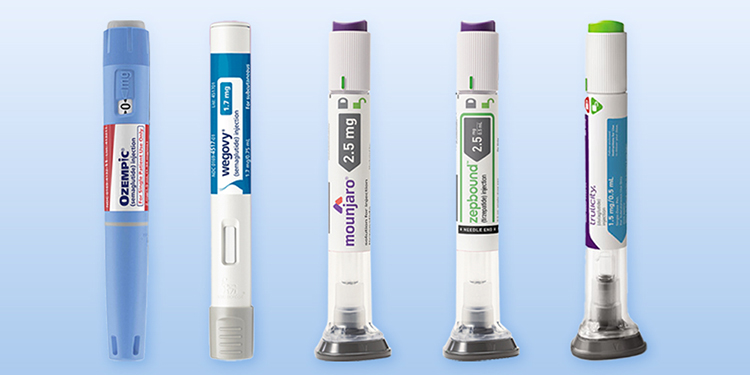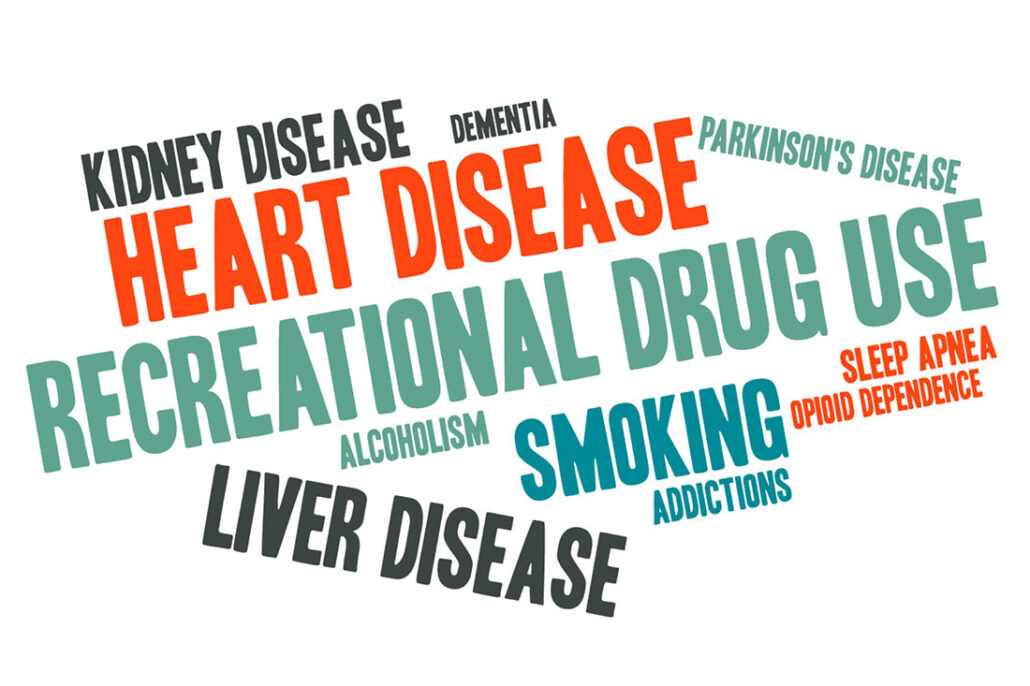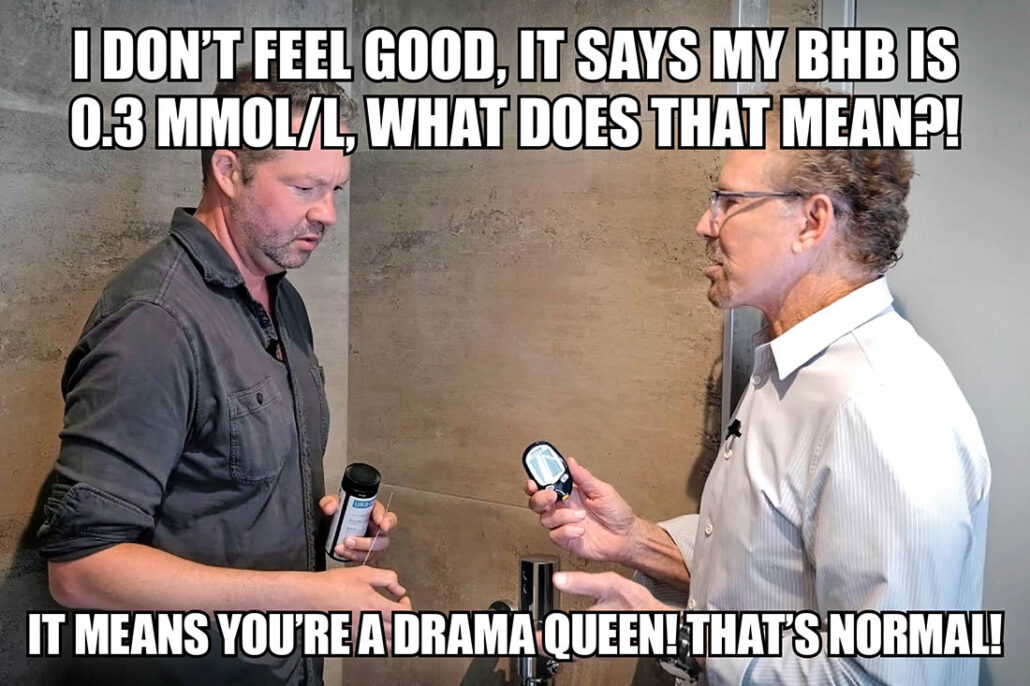
*Important Note: This article discusses depression and suicide.
- In 2023, concerns emerged about the potential mental health effects of GLP-1 RA medications following reports of increased suicide attempts.
- Recent studies suggest that people with diabetes who started GLP-1 medications like tirzepatide, semaglutide, dulaglutide, and exenatide were less likely to develop depression compared to those not on a GLP-1 medication.
- Early research indicates that GLP-1s may offer benefits beyond diabetes and weight loss, with potential applications in neurodegenerative diseases like Alzheimer’s and Parkinson’s, as well as addiction treatment.
- Individual experiences with GLP-1s may vary, and further research is still needed to fully understand the long-term effects of GLP-1 medications and their potential applications in various mental health conditions.
Reading Time: 5 minutes
Over the last couple of years, there’s been conflicting information in the news about GLP-1 medications like Ozempic and Mounjaro and mental health. While some reports suggested these medications can contribute to mood changes, increased anxiety, or even suicidal thoughts, others indicated potential benefits, such as improved emotional well-being and a lower risk of depression.
With ongoing studies and evolving data, it can be hard to separate fact from speculation. In this article, we’ll give you the latest update on what we know—and what still needs further research.
What Are GLP-1 Medications?
GLP-1 receptor agonists (RAs) are medications used to treat type 2 diabetes and obesity. They work by stimulating insulin secretion, reducing glucose production, and slowing stomach motility to help regulate blood sugar levels. They also communicate with your brain to make you feel less hungry and feel fuller faster.

Generic Names for GLP-1s Include:
- Semaglutide
- Liraglutide
- Dulaglutide
- Tirzepatide (GLP-1 + GIP)
Popular Brand Names of GLP-1s:
Although GLP-1s have been available since 2005 (Byetta was the first), their popularity has soared in recent years largely due to celebrity endorsements and the drug’s effectiveness as a weight loss treatment.
GLP-1s and Depression: Initial Concerns and Investigations

In 2023, concerns arose regarding reports of a rise in suicide attempts in people using these medications, leading many to question whether they were too good to be true.
First, the European Medicines Agency announced an investigation in July 2023 after 150 reported cases of self-harm. Then the FDA followed with their own investigation. Popular news outlets published articles warning of this potential serious side effect.
So do these medications truly cause depression? Are people more likely to self-harm or attempt suicide? Or could the uptick in cases simply be because more people are using the drugs? Is it all just a coincidence?
Postmarketing Side Effect Phenomenon
After a medication is approved by the FDA, new side effects can emerge as more and more people begin using it—a phenomenon known as postmarketing side effects. As more people use the medication over a longer period of time, rare side effects may surface that weren’t detected in the initial studies involving a smaller group of people.
The FDA continuously monitors reports of side effects to ensure the safety of medications. But determining if the reports are a true side effect or just a coincidence requires confirmation with research.
For a tense six months, we did not have any research into the question of GLP-1s and increased risk of suicide. We now have some clarity regarding medications like Mounjaro, Ozempic, and mental health.
The Latest Research on GLP-1s and Mental Health: No Increased Risk of Suicide
In January 2024, researchers at Case Western Reserve University released the results of a study that looked at medical records of over 1.5 million people with type 2 diabetes or obesity. Surprisingly, they found a lower rate of depression and suicidal ideation among those taking semaglutide (Ozempic/Wegovy).
The study reported a 73% lower risk of first-time suicidal ideation and a 56% lower risk of recurrent suicidal ideation among those using semaglutide for weight loss. For diabetes patients, these reductions were 64% and 49%, respectively.
This suggests people with type 2 diabetes or obesity were less likely to experience depression or thoughts of suicide if they were on semaglutide, compared to people on other medications (non-GLP-1s). This was even true for people who had a history of depression and/or suicidal ideation.
Shortly after this study was published in January 2024, the FDA released an announcement stating that their preliminary evaluation did not find evidence that use of these medicines causes suicidal thoughts or actions.
In February 2024, another study revealed that diabetic patients prescribed tirzepatide, semaglutide, dulaglutide, and exenatide were less likely to be diagnosed with depression after starting the medication compared to those not on a GLP-1 medication.
What Might Explain the Lower Risk of Depression?
Researchers hypothesize that GLP-1 medications decrease inflammation throughout the body at a cellular level, benefiting the heart, kidneys, and now possibly even the brain.
Chronic inflammation has been increasingly linked to mental health conditions, including depression, as it can disrupt neurotransmitter function and impair the brain’s ability to regulate mood.
Potential Benefits of GLP-1s Beyond Diabetes and Obesity

GLP-1 medications likely have a positive effect on the brain’s reward-addiction center, helping to reduce food cravings and reduce appetite, thereby aiding in weight loss. If these medications reduce food cravings, could they help with other cravings too?
There is ongoing research to explore whether these medications could also help with alcoholism, smoking, opioid dependence, recreational drug use, etc. In the coming years, we can expect new findings on whether GLP-1s could assist individuals struggling with addiction.
Some GLP-1 medications have already been FDA approved to reduce the risk of heart disease, kidney disease, and sleep apnea. Studies are ongoing for other potential uses, including treatment of MASLD/MASH (previously known as fatty liver disease), dementia, and Parkinson’s disease.
Frequently Asked Questions
🧠 Should I be concerned about Ozempic and mental health side effects?
There’s no strong clinical evidence linking semaglutide to major mental health side effects, though some users have reported mood changes. If you start on a GLP-1 medication and you notice increased sadness, anxiety, mood swings, or thoughts of self-harm, speak to your doctor or medical health professional right away.
🔬 What’s the latest research regarding GLP-1s and mental health?
The latest research continues to look good for these important medications. This recent study evaluated health outcomes in over 2 million diabetes patients using GLP-1 RAs. The findings revealed that these medications are associated with some cognitive and behavioral health benefits, including reduced risks of seizures, substance addiction, suicidal ideation, and neurocognitive disorders like Alzheimer’s disease.
However, researchers emphasized the importance of careful monitoring and further investigation into the comprehensive effects of GLP-1RAs across various organ systems. If you are on a GLP-1 and notice increased sadness, anxiety, mood swings, or thoughts of self-harm, speak to your doctor or medical health professional right away.
😰 What are common signs of depression and anxiety?
Common signs of depression include persistent sadness or low mood, loss of interest in activities you once enjoyed, low energy, changes in sleep and/or appetite, difficulty concentrating, physical symptoms with no clear cause, and thoughts of self-harm. Common signs of anxiety include excessive worry that’s difficult to control, restlessness, racing thoughts or overthinking, increased heart rate, shortness of breath, trouble sleeping, and irritability. If symptoms persist for more than two weeks, interfere with daily life, or worsen over time, talk to your doctor or mental health professional.
🚦 Should I stop taking Ozempic if I feel down?
It’s always best to call your diabetes doctor or mental-health provider first. They can help sort out whether the mood change is medication-related or due to other factors like stress, low blood sugar, or life events and adjust treatment safely.
🤔 How do I talk to my doctor about Ozempic and mental health?
Bring it up early and honestly: “I’ve read about mood changes on these meds. What signs should I track?” Keep a simple journal or use a mood-tracking app and pair it with your CGM data to see if lows or highs correlate with mood swings.
Key Takeaways: What We Know So Far
While concerns about potential mental health side effects of GLP-1 medications initially raised alarms, recent studies offer more clarity.
Research has shown that GLP-1s may actually reduce the risk of depression and suicidal thoughts in people with type 2 diabetes and obesity.
However, individual responses can vary, and more research is needed to fully understand the long-term mental health effects of GLP-1s and their role in treating other mental health conditions.
If you are experiencing any signs of depression, speak with your doctor or mental health provider. If you are in crisis or having thoughts of suicide, call, text, or chat with the Suicide and Crisis Lifeline at 988 or 988 Lifeline.org.
As always, it’s essential to work closely with your healthcare provider to assess risks and benefits when considering any new medication.
For more information on GLP-1 medications, visit our resource library and video vault.
Additional Resources:


Dr. Jensen,
Thank you for your article!
There is growing concern about the prescription of GLP1 medications to people currently with an eating disorder or a history of an eating disorder. And with that, the suggestion of prescribing providers screening for EDs before prescribing the medication as part of having informed discussions with patients about the medication and obtaining consent from patients accordingly. I hope that you consider preparing an article on these important concerns given the prevalence of disordered feeding and eating disorders with PWDs.
Thank you for your consideration.
Regards, Alison Ward
Hi Alison,
Thank you for your comment. We actually just recorded a podcast addressing this issue that should be coming out at the end of this month.